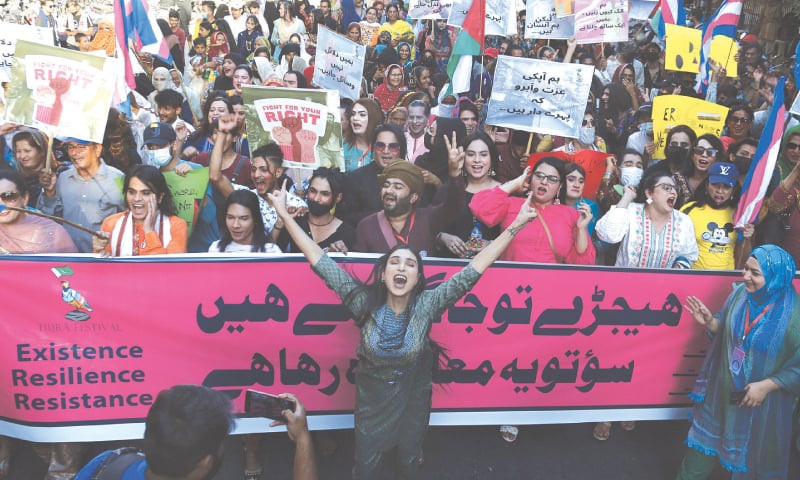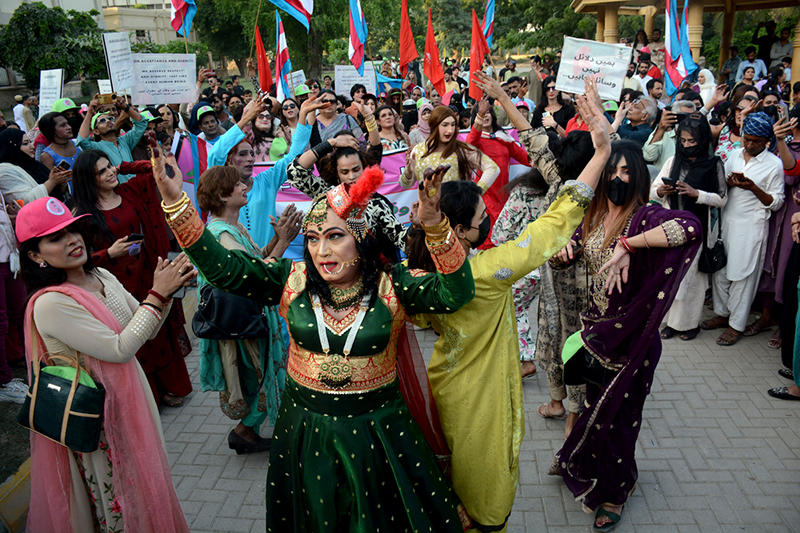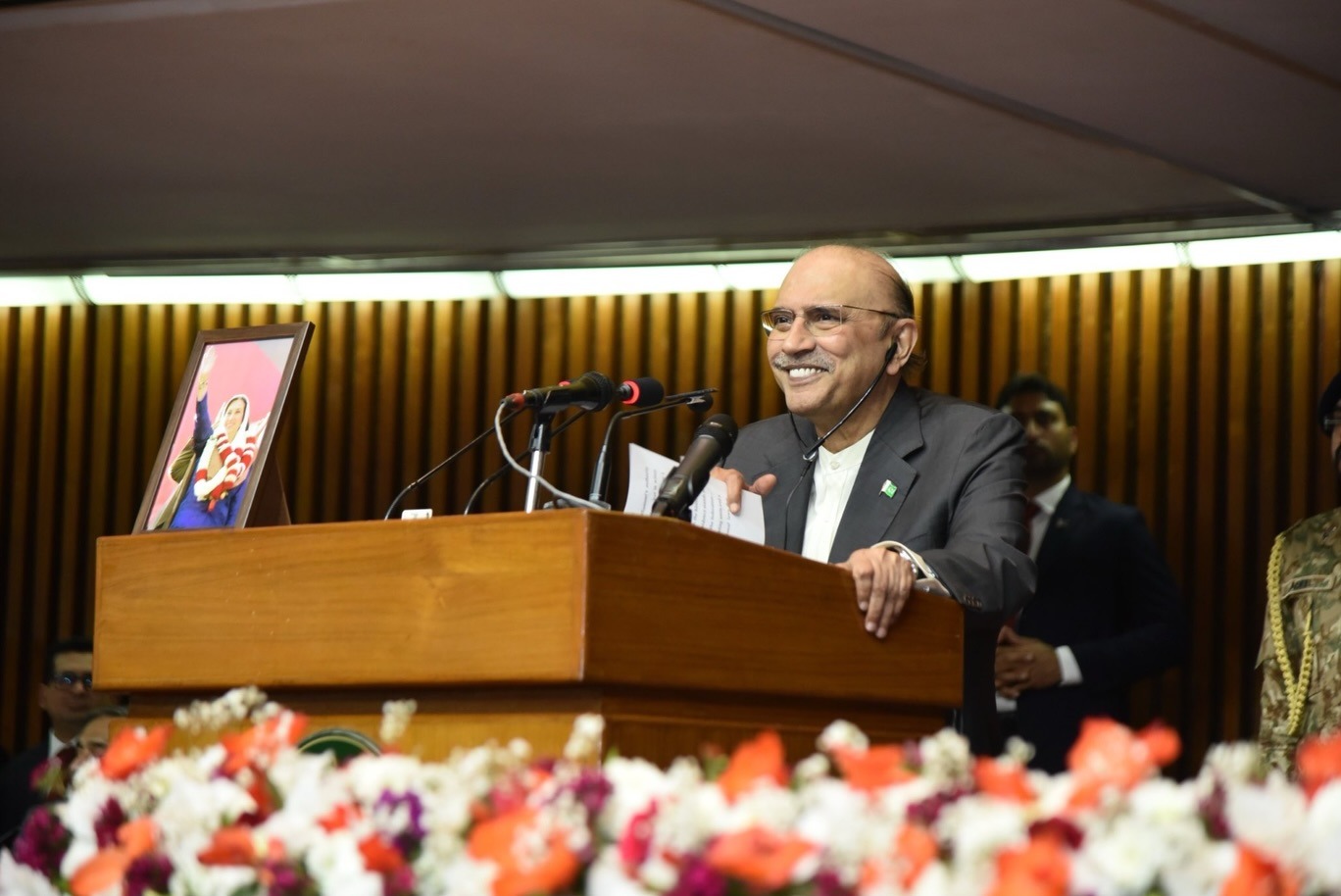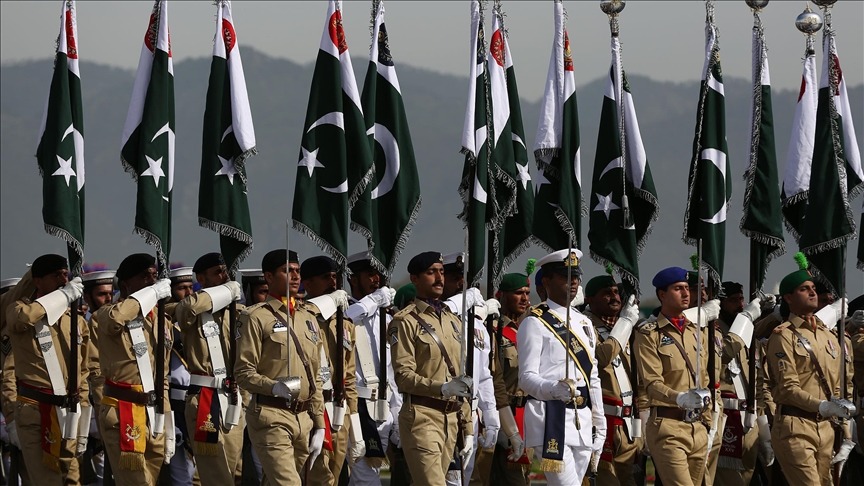In the heart of Karachi, the transgender community came together in a vibrant display of celebration and protest. The Hijra Festival 2025 at Burns Garden became much more than just music, dance and colour — it was an emphatic demand for dignity, rights and visibility for the Khawaja Sira community of Pakistan. In this column, we explore the festival, the underlying issues, and what this moment reveals about our society.
A Festival Rooted in Identity
The festival gathered hundreds of transgender persons and their allies, rallying through the streets before performing on stage. Their voices—loud, proud, defiant—echoed a message: “We are here, we matter.” The scene was celebratory: bright dresses, glittering bangles, dance routines, musical interludes. Yet beneath the celebration lay a serious agenda. As community leader Kami Chaudhry stated: “While the transgender community is an integral part of society, they continue to face systemic marginalisation. We are citizens of this country, yet we are not treated equally.”
This dual nature—festivity fused with activism—is what gives the Hijra Festival its power. On one hand, it celebrates identity. On the other, it amplifies pain and the demand for justice.
Demands Beyond the Dance
Festival participants marched with banners and placards reading “We want freedom,” “We deserve respect and dignity,” and “Change the clap… the mindset will change too.” Their demands were concrete:
-
Implementation of job quotas for transgender persons across government and private sectors.
-
Inclusion in disaster relief programmes, housing, healthcare, and education.
-
Legislation for reserved seats in national and provincial assemblies for transgender representatives.
-
Protection from rising violence and hate crimes against their community.
These demands reflect years of neglect and exclusion. Legal recognition may exist — but the lived reality remains starkly unequal.
Environment Meets Equality
In a powerful twist, this year’s Hijra Festival added environmental protection to its theme. Transgender rights activists declared that ecological destruction affects them too. At the festival, participants planted saplings, set up awareness stalls and called the wider public to join in healing the land. As Dr Sarah Gill, a transgender rights advocate, said: “We stand for our identity, our dignity, and our freedom, and we also stand for the protection of our environment.”
In linking gender rights with environmental rights, the festival signals a new maturity — one that sees the transgender community not just as victims or claimants, but as stakeholders in society and planet.
Joy and Grief Side by Side
The day was full of laughter and songs, but underneath there was pain. Leaders reminded attendees of the continuing violence against transgender people — including multiple murders in recent years. The carnival-like atmosphere was a momentary respite from a lifetime of discrimination, poverty and fear.
The Khawaja Sira community often lives in the margins — socially, economically, institutionally. A festival day does not change that overnight, but it does offer a platform for collective voice and visibility. It says: we will not be invisible any longer.
Unity and Visibility
One distinctive strength of the festival was the sense of community solidarity. Transgender persons from around the region participated, joined by activists, allies, and supporters. Labour and human rights campaigner Nasir Mansoor hailed the event: “The Khawaja Sara community deserves justice, protection, and equal rights.” That such voices are present alongside the community itself shows the alliances being formed.
The festival served as a public affirmation: the transgender community is not a fringe group but a social force demanding recognition and participation. Their presence in a public space in Karachi is significant — it signals that they will not be content with the sidelines.
Legal Framework vs. Everyday Reality

Pakistan has made legal progress. In 2009 the Supreme Court recognised transgender persons as a third gender. In 2018 the Transgender Persons (Protection of Rights) Act promised education, employment and basic civil rights. Yet as the festival’s message underscored — the laws often remain on paper while lives on the ground lag behind.
Schools, hospitals, workplaces — all still show symptoms of exclusion. As one leader pointed out: “We are citizens of this country, yet we are not treated equally.” The Hijra Festival thus becomes both celebration and protest: a joyful affirmation of identity coupled with a demand for the state to live up to its promise.
The Mirror of Our Society
The experience of the transgender community in Pakistan offers a reflection — a mirror of our social and moral health. How a society treats its most vulnerable tells us about its dignity. By elevating their voices, the festival asks us: Are we truly inclusive? Do our laws, institutions and hearts recognise every human being?
If Pakistan wants to call itself a society of equal citizens, this is one of the tests. The festival’s vibrancy is inspiring — yet if the day after the celebration, things revert to old patterns of exclusion, the message is faint.
Moving Forward: What Needs to Be Done
From the Hijra Festival’s demands and symbolism we can draw a roadmap for change:
-
Implementation of law: The Transgender Rights Act must be actively enforced — quotas filled, protections upheld, discrimination penalised.
-
Educational access: Transgender persons should be encouraged and supported to attend mainstream schools and universities, with scholarships and mentorships.
-
Economic opportunity: Job training and placements, inclusive hiring practices and entrepreneurship support can alter generational poverty.
-
Healthcare inclusion: Specialized services for gender-affirming care, mental health support and non-discriminatory access to general healthcare are essential.
-
Social awareness: Public campaigns to shift the narrative from spectacle to citizen, from object to subject. The festival helps but sustained action is needed.
-
Representation: Reserved seats or electoral support for transgender individuals in assemblies would ensure their political voice is heard.
A Day of Hope With Many Tomorrows
The Hijra Festival 2025 succeeded in being more than a one-day event. It served as a rallying cry, a marker of aspiration, a demonstration of cultural identity and political demand. It showed that transgender citizens are ready and willing to claim their rightful place in society.
Let us hope that beyond the songs, dances and slogans lies lasting change. That the steps planted at this festival—like the saplings for the environment—will grow roots. That recognition becomes respect, participation becomes equality, and visibility becomes acceptance.
In Closing
When bright lights fade and the stage empties, the work remains. The real measure of success will be the doors that open tomorrow: the job interview, the classroom seat, the hospital bed, the ballot box. Because dancing, clapping and celebrating are beautiful — but justice, dignity and human rights are indispensable.
The Hijra Festival 2025 may be a snapshot of one day in Karachi, but its significance echoes far beyond. It reminds us that every human being — regardless of gender, identity or history — deserves a space in society. It reminds us that equality is not just a word, but a practice. And it reminds us that when those on the margins speak, the centre must listen.
Rao Imran Suleman is a senior analyst and columnist based in Karachi. Through his writings, he highlights Pakistan’s social stories, bringing visibility to the marginalised and exploring the intersections of identity, rights and culture.



